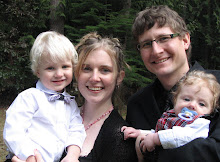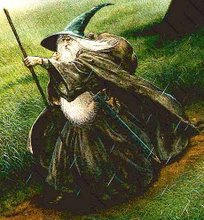Why Should God Care Less? part 9
This carries on from the post below:
But, traditionally, who is the author of Genesis? It’s your chance to respond now, on the count of 3. One, two, three! Moses, yeah. Good. When do you think he wrote it? When he was in the little ark floating along, kind of a child protégé? [laughter] When do you think Moses wrote this? Sorry? Help me here. Speak up, I’m a drummer and I’m a bit deaf, so I need to hear from you. Before he died. YES! Very good, before he died. [laughter] So, somewhere after his birth and sometime before his death. Excellent! [laughter] Geri [the Canadian Inter-varsity Christian Fellowship President], you’re in strife. You’re in real trouble. Well, o.k., that’s a good place to start. Can we perhaps refine that just a little? Any other suggestions? When do you think he would have written this? Well, in his lifetime. At the end of his life? So, that would be after the exodus? Of course. And people who work in these texts realize there are lots of things in the book of Genesis that reflect exodus events. Yes, of course, it’s after the exodus. And then where has Israel been for 400 years? Egypt. Not in Babylon. Not in ancient Sumer. They’ve been living in Egypt. Now, you know what’s staggering? Very few biblical scholars bother to look at what’s going on in Egypt as background to Genesis 1. We’re going to do that. Even if I am a new testament person.
I want to suggest that Egypt is the ideological context for these five books of Moses. It’s not to say there aren’t some bleed overs from other cultures, because there were. The ancient world had lots of comings and goings; lots of communication. There was cultural diversification; that was happening. But primarily Egypt. Now what’s going on in the Egyptian stuff? Well, first the Egyptian royal ideology. Amon Re, he’s the sun god. He brings light and life to Egypt. Every morning he arises out of the sea of reeds. In the Egyptian creation story you start with the sea of reeds. Out of that emerges the first cosmic mountain. The gods self materialize on them. Amon Re is the sun god representing some of this. He rises in the east, travels across the sky and you can see the rays coming down – the picture on the left here – as those rays come down they bring life and light to Egypt. In the evening he descends in the west again into the sea of reeds. The great pre-cosmic ocean. He goes into the underworld. And while he’s there he meets Appophus (spelling?) – the chaos monster. A serpent. Amon Re is escorted by two fire breathing cobra. He does battle with Appophus and he arises the next morning victorious in the east to bring again life and light to Egypt. Every day is a recapitulation of the creation cycle. So in this period of time, in the Middle Kingdom, they build these huge temple structures, and they have these processional ways oriented toward the east so that when Amon Re rises his light shines down these processional paths to light up the little na-os (sp?) in which his image is contained. And on either side of these processional ways some of these old temples would have little mini cosmic seas of reeds. Shallow pools with reeds in them. So the architecture of their temples re-capitulated their creation narrative. My bell’s gone; I’m only part way through this. Well let’s see if we can go a bit more quickly. Pharaoh is the son of Amon Re and he’s actually the embodiment of god upon the earth. Very important to keep that in mind. Son of god language. Egypt knows what that means. That’s Pharaoh. Now, notice what Pharaoh wears in his crown. Notice that? What’s he got there? An enraged uraya (spelling?). Sorry, an enraged female cobra called a Uraya. Why do you think he’s wearing a cobra? Because cobras are what escort Amon Re as he defeats Appophus. So here you see Pharaoh, and it’s not that Egyptians don’t know about perspective, but their art was a form of magic. It was, not quite a Greek Memmasis (s?), but a way of somehow capturing the life forces. So Pharaoh is much bigger than anyone else because he’s the son of Amon Re. There’s his crown. He’s walking around and he’s got this enraged cobra and what’s he doing? He’s defeating these Nubians who represent forces of chaos.
Now that’s their narrative. One day, out of the desert, comes Aaron and Mo. And they meet Pharaoh and they have a word for him. ‘Yahweh says Israel is my first born son!’ What do you think that says to Pharaoh? Heh? You see the first person called the son of god in the bible is not Jesus, actually its Israel. It doesn’t mean Israel is divine. It’s father – son relationship and its speaking directly into the Egyptian ideological environment.


No comments:
Post a Comment